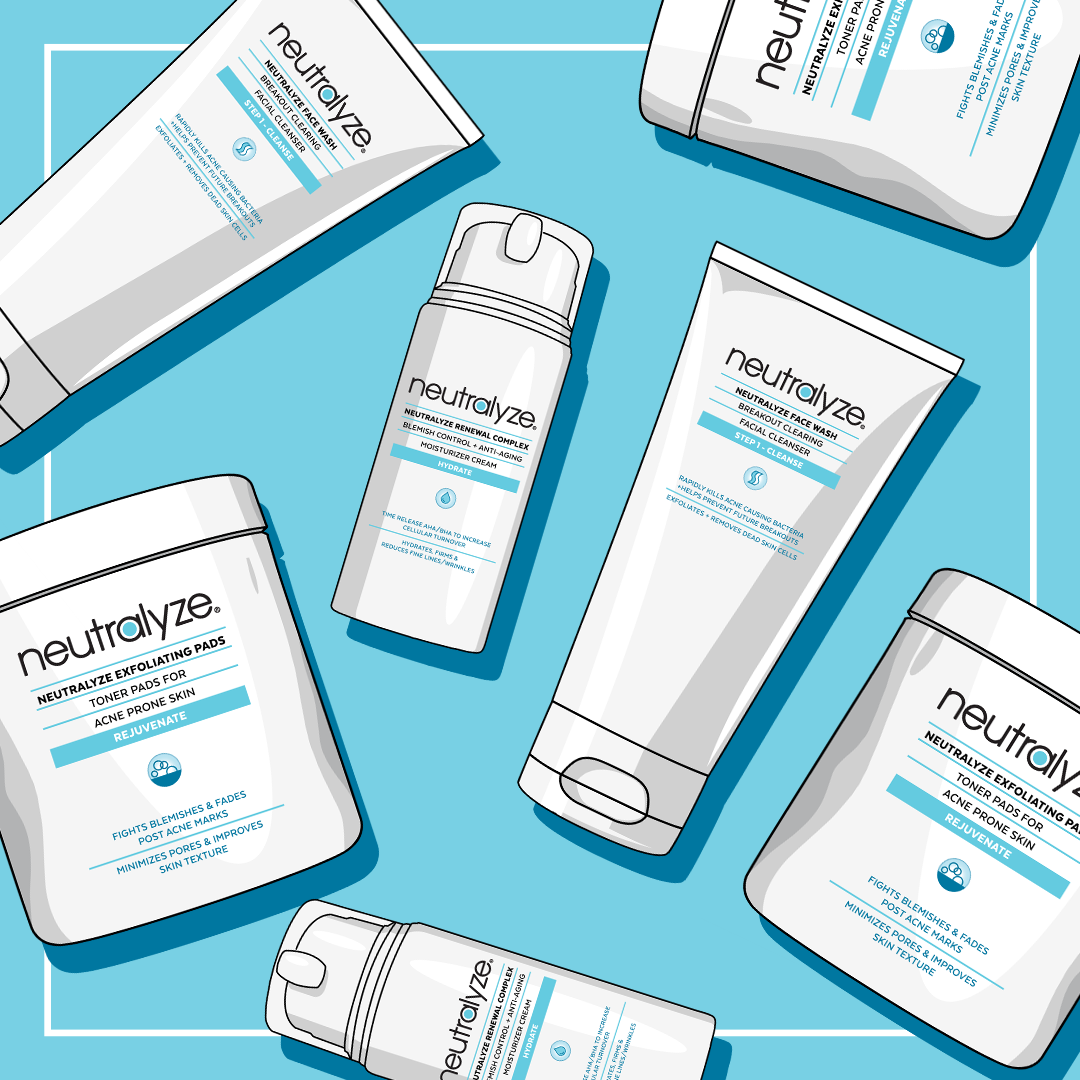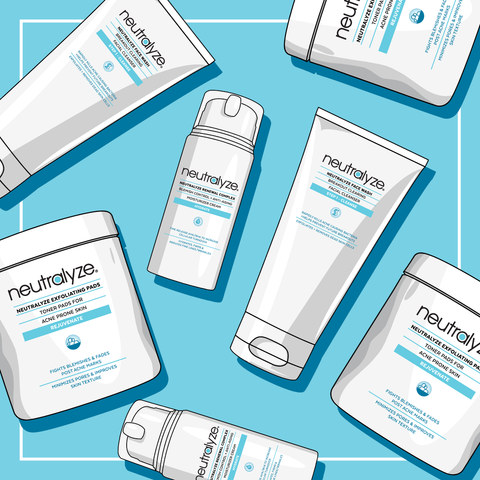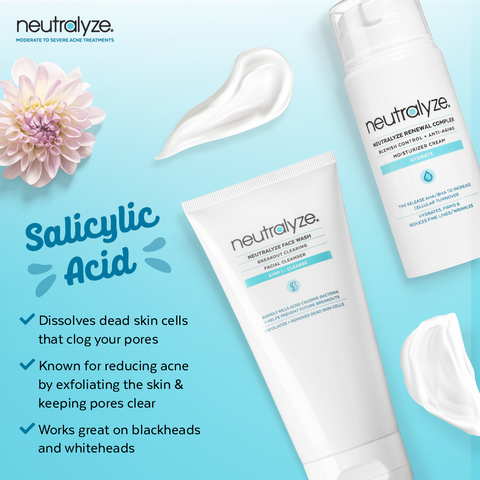Different Skin Conditions and How to Manage (Sun Damage, Acne, Aging, Rosacea)

Have you been holding off on seeing a dermatologist? While common skin conditions, like acne, can be treated with over-the-counter skincare solutions, there are other, more persistent issues that can interfere with your everyday life. These cases may require immediate attention from a dermatologist.
If your skin is experiencing redness, soreness, inflammation, or non-stop itching, you have every reason to pick up your phone and schedule an appointment. Believe it or not, these flare-ups are more common than you think. In the US, more than 85 million people suffer from skin diseases, according to the American Academy of Dermatology (AAD). That’s one in every four Americans.
Whether you’re afflicted with acne or itchy eczema, you’re just one of tens of millions of people grappling with a skin condition. There’s no shame in asking for help from a skincare expert, who can help you identify the condition, its causes, and how you can treat it and prevent it from taking over your wellbeing.
We’ve detailed some of the most common skin problems below. Read up to learn more about what you may be experiencing, and how you can treat and protect your skin.
Top 9 Common Skin Conditions
Skin disease is an umbrella term encompassing a wide range of minor and chronic skin issues, including acne, dermatitis, psoriasis, and even skin cancer. Some of the most common conditions include:
- Acne
Affecting about 50 million Americans every year, acne is the most common skin problem in the nation. Although it affects people of all ages, acne often begins during puberty. It may also affect older people in their 30s and 40s.
Urticaria or hives are red, itchy bumps on your skin. They’re caused by irritants such as medication, bug bites, food, a type of fabric, soap, or detergent, and other substances that you may be allergic to. Aside from itchiness, the red patches may cause burning or stinging sensations.
Hives can go away within two to four hours. But for some people, the condition can persist for several months.
Hives can show up on various parts of your body, including your lips, tongue, and throat. They may vary in size. Sometimes, the bumps may join together to form larger patches of irritated skin, called plaques.
Eczema, also called atopic dermatitis, is a blanket term referring to various skin conditions that make your skin inflamed and itchy. It affects babies and kids more than any other age group. About 90 percent of people experience atopic dermatitis before the age of five. However, you can also develop the condition later in life.
Itchiness and dryness are some of the most common symptoms of eczema. Kids may develop rashes on their cheeks, knees, scalp, and elbows, while adults may develop them on their wrists, face, neck, palms, elbows, ankles, and knees.
- Psoriasis
The majority of psoriasis manifests as red skin with white flaky patches, which dermatologists call plaques. Although they usually appear on your elbows, scalp, and lower back, they can show up anywhere on the body too.
The severity of psoriasis varies for every individual. According to the AAD, roughly 80 percent of psoriasis cases are mild to moderate, while the remaining 20 percent are classified as severe.
- Keratosis Pilaris
Keratosis Pilaris is a harmless skin condition caused by keratin buildup. It leads to dry and rough bumps on your skin, which is why this condition is sometimes called “chicken skin.” These bumps aren’t painful or itchy. They tend to develop on the cheeks, arms, thighs, and buttocks.
The sandpaper-like bumps usually appear as the same color as your skin. If you have fairer skin, however, they may appear as red bumps.
- Rosacea
Rosacea is a skin condition that often manifests as redness, inflammation, and enlarged or visible blood vessels, often on the face. Some cases may produce small, pus-filled bumps or pimples. These bumps occur around your cheeks, chin, nose, and forehead.
People with lighter skin are prone to rosacea. The lighter your skin, hair, and eyes, the more likely you are to develop this skin condition. If you’re a woman in your 30s to 50s, your chances of getting rosacea are even higher.
Redness is the most common symptom of rosacea. Some rosacea patients experience ocular rosacea too, which manifests as a burning sensation, swelling, and redness in the eyes and on the eyelids.
Although rosacea comes and goes, it is important to seek professional help as the condition may become permanent if you leave it unattended. There is no cure for the condition, but you can manage it with your dermatologist’s prescribed treatment and lifestyle changes.
- Skin cancer
According to the CDC, skin cancer is the most common form of cancer in the US. Approximately 9,500 people are diagnosed with some form of skin cancer every day.
Basal cell carcinoma (BCC) is the most common type of skin cancer. Each year, more than four million new cases are diagnosed. However, it accounts for only 0.1 percent of fatalities from cancer.
If you spend a lot of time under the sun, you increase your chances of getting BCC. This skin cancer begins in your basal cells, which are responsible for producing new skin cells. Most BCCs occur due to long-term exposure to harmful UV rays. It usually manifests in areas often exposed to the sun, such as the back of the neck, shoulders, and arms.
Basic Skincare for All Skin Conditions
Every skincare regimen has three basic steps: cleanse, moisturize, and protect. No matter your skin type or skin condition, a skincare regimen helps you treat problem areas and helps your skin function at its best.
- Cleanse
If you wear makeup all day, a double-cleanse method can help you remove makeup from your skin and prevent it from seeping into your pores.
A double-cleanse method involves two different types of cleansers, the first of which is usually oil-based. Oil is a good substance for removing makeup without using harsh chemicals. The second cleanse typically involves a water-based cleanser, which should remove any lingering impurities on your face, and which keeps the skin fresh and hydrated.
As for your body, choose a soap or suitable body wash made specifically for your skin type. If you have sensitive skin, or if you suffer from eczema, use mild soaps, preferably without fragrances and artificial dyes.
- Moisturize
Keep your skin hydrated to keep it healthy. Use a moisturizer formulated for your skin type. If, say, you have oily skin, a light gel formula is ideal. You won’t need to moisturize as often as those with dryer skin.
Lotions, which are thicker than gel formulas, are recommended for normal or combination skin. Creams are ideal for dry skin types.
If you have sensitive and inflamed skin, use a light balm that can soothe extremely dry areas. But make sure you don’t apply balm to your face if you’re prone to acne.
- Protect
No skin regimen is complete without sunscreen. Even indoors, you’re still exposed to UV radiation, especially if you have a home designed to let in plenty of natural light. Putting on sunscreen can help maintain your skin, fight the signs of aging, and protect you from skin cancers.
If you’re spending the day outdoors, make sure to apply sunscreen to exposed areas of the body half an hour before stepping outside. Reapply every two hours to keep your skin protected.
Skincare Solutions for Each Condition
Getting the right treatment for your skin can significantly improve the quality of your life, your health, and your wellbeing. If you have these common skin conditions, look to our guide below for treatment and prevention.
- Acne
Topical medications are commonly used to get rid of acne. For mild cases, a dermatologist might recommend over-the-counter treatments containing benzoyl peroxide to get rid of the acne and keep you from breaking out.
Retinol creams can also help keep acne at bay. However, it will make your acne worse before clearing up your skin. As with other skincare solutions, retinol has to be applied religiously to see noticeable results within eight to 12 weeks.
Remember that people respond to treatments differently. Consult your dermatologist to identify the products, medications, and regimen you need, and stay consistent with your daily skincare routine to maintain and to prevent acne from coming back.
- Hives
Hives are treated with antihistamines. Chronic conditions, however, might require a combination of antihistamines and other medications.
As a temporary remedy, you can apply a cold compress to your skin to alleviate swelling. Wear loose, breathable clothing to prevent further irritation, and use only hypoallergenic soaps and detergents.
- Eczema
Eczema doesn’t have a cure, but the right treatments and lifestyle changes can prevent it from reoccurring.
Take note that eczema can go away with time. For some, however, it can be a lifelong condition. To alleviate its symptoms and promote good skin, make sure you moisturize. Use mild soaps and natural remedies approved by your dermatologist. More importantly, monitor your flare-ups so that you can identify potential triggers and avoid them.
- Psoriasis
There are various treatments for psoriasis: topical, phototherapy, and systemic. Treatments will vary depending on the type of psoriasis you have and its severity.
A dermatologist may start with mild skincare solutions such as topical creams. Stronger treatments may be required given no improvements over time. Your dermatologist may recommend phototherapy, which involves exposing your skin to UV light. In severe cases, systemic treatments such as oral or injected medicines may be required to control and get rid of psoriasis.
- Keratosis Pilaris
For some people, keratosis pilaris will clear up on its own. If the condition makes you self-conscious about your skin, you can seek treatment. There are over-the-counter creams with alpha hydroxy acid and salicylic acid that can help you get rid of dead skin cells. Topical retinoids also help prevent clogged follicles.
Aside from these medicated creams, taking warm baths and moisturizing your skin everyday can improve your skin condition.
- Rosacea
There is no cure for rosacea. But you can manage its symptoms with the right treatments. Dermatologists may prescribe medication such as azelaic acid and brimonidine. They may also recommend laser and dermabrasion treatments to the affected areas.
For everyday skincare, stick to gentle, non-irritating products. Wear sunscreen. More importantly, keep your skin hydrated especially during colder months, when the skin tends to be drier.
- Skin cancer
As they say, prevention is better than the cure. To protect yourself from various forms of skin cancer, wear sunscreen anytime you’re exposed to the sun.
You can also reduce your chances of getting skin cancers by wearing sunglasses, hats, and other apparel to cover up, especially on bright and hot sunny days.
If over-the-counter skincare solutions don’t seem to work, a dermatologist can assess your condition and prescribe stronger medication where and when necessary. Refer to their expertise to determine what you need to keep yourself, and your skin, happy and healthy.


